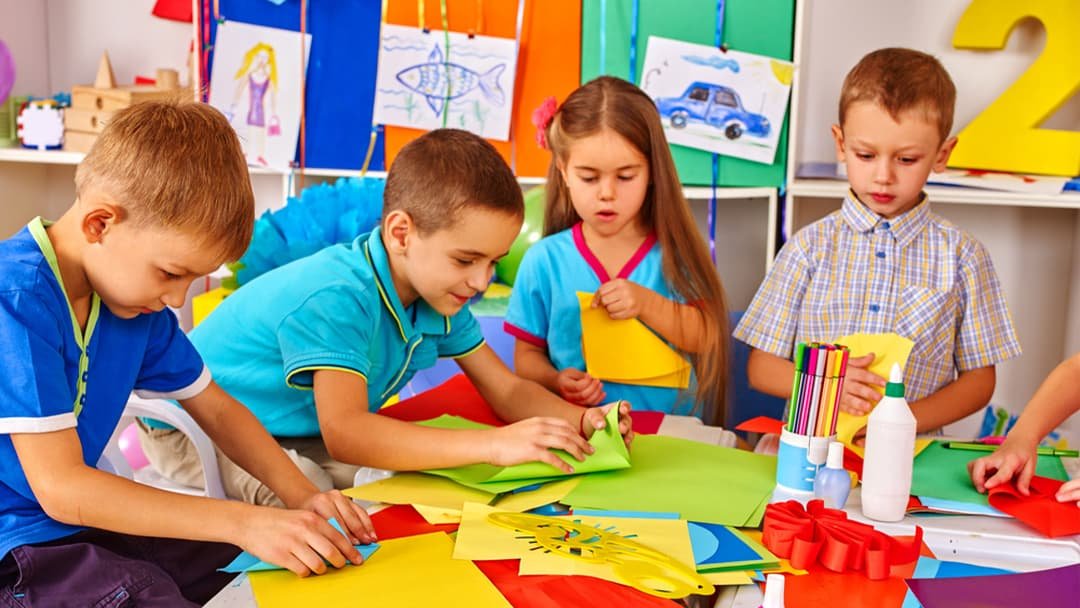Encouraging social skills and cooperation in children is essential for their successful interactions with others and the development of positive relationships. By nurturing these skills, children learn how to communicate effectively, collaborate, and show empathy towards others. Here are some strategies to promote social skills and cooperation in children:
- Model Social Skills: Be a positive role model for your child by demonstrating good social skills and cooperation in your interactions with others. Children often learn by observing, so modeling these behaviors sets a powerful example.
- Encourage Playdates and Group Activities: Arrange playdates and group activities for your child to interact with peers. These experiences offer opportunities to practice sharing, taking turns, and working together in a social setting.
- Teach Communication Skills: Help your child develop effective communication skills, such as active listening and using appropriate language. Encourage them to express their thoughts and feelings clearly and respectfully.
- Emphasize Empathy: Teach your child to understand and empathize with the feelings of others. Encourage them to consider how their actions might affect others and to respond with kindness and compassion.
- Role-Playing and Pretend Play: Engage in role-playing and pretend play with your child to practice social situations and problem-solving scenarios. This interactive approach allows them to develop social skills in a fun and creative way.
- Praise Cooperative Behavior: Acknowledge and praise your child’s cooperative behaviors. Positive reinforcement reinforces their willingness to cooperate and encourages them to continue practicing these skills.
- Discuss Social Situations: Talk to your child about different social situations they may encounter and how to handle them appropriately. Offer guidance on managing conflicts, sharing, and showing respect for others’ boundaries.
- Foster Teamwork: Encourage teamwork through family activities or games. Working together towards a common goal helps children understand the value of cooperation and collaboration.
- Read Books on Social Skills: Read books that focus on social skills and cooperation with your child. Discuss the characters’ actions and feelings, and relate them to real-life situations.
- Create a Supportive Environment: Ensure that your home environment is supportive and encourages positive social interactions. Encourage open communication and create opportunities for your child to engage with others.
Nurturing Healthy Friendships and Relationships
Nurturing healthy friendships and relationships is vital for children’s social and emotional development. Positive relationships contribute to their overall well-being, self-esteem, and sense of belonging. As parents, we can support our children in cultivating meaningful connections with others. Here are some ways to nurture healthy friendships and relationships in children:
- Teach Empathy and Understanding: Help your child develop empathy by encouraging them to see things from others’ perspectives. Talk about how different people may feel in certain situations and discuss the importance of kindness and compassion.
- Foster Communication Skills: Encourage open and honest communication with your child. Teach them active listening and effective communication, which are essential for building strong and meaningful relationships.
- Support Shared Interests: Encourage your child to explore their interests and hobbies. Engaging in activities they enjoy can lead to shared experiences and common ground with others, fostering the development of friendships.
- Role-Play Social Scenarios: Engage in role-playing with your child to practice social scenarios. This can help them develop social skills, such as introducing themselves, joining a group, or resolving conflicts.
- Set Play Dates and Social Gatherings: Arrange play dates and social gatherings for your child to interact with peers. These opportunities provide a chance to develop and strengthen friendships outside of school.
- Teach Conflict Resolution: Guide your child in resolving conflicts peacefully and respectfully. Help them understand that disagreements are normal but can be resolved through open communication and compromise.
- Encourage Inclusivity: Talk to your child about the importance of being inclusive and making others feel welcome. Encourage them to reach out to new or shy peers to help them feel included.
- Be Supportive: Support your child in their efforts to make and maintain friendships. Offer encouragement and praise for their social interactions, regardless of the outcomes.
- Discuss Healthy Boundaries: Teach your child about respecting personal boundaries and understanding when someone needs space. Helping them recognize and respect boundaries fosters healthy and respectful relationships.
- Model Healthy Relationships: Model healthy relationships in your own life. Demonstrate positive communication, conflict resolution, and supportive behaviors in your interactions with others.
Addressing Bullying and Social Challenges
Addressing bullying and social challenges is essential to creating a safe and inclusive environment for children. Bullying can have serious and lasting effects on a child’s well-being and self-esteem, making it crucial for parents to be proactive in addressing these issues. Here are some strategies to address bullying and social challenges:
- Open Communication: Establish open communication with your child, encouraging them to share their experiences and feelings without fear of judgment. Listen attentively to their concerns about bullying or social difficulties.
- Educate about Bullying: Teach your child about what constitutes bullying and the different forms it can take (verbal, physical, or cyberbullying). Ensure they understand that no form of bullying is acceptable and that it’s essential to speak up if they witness or experience it.
- Promote Empathy and Respect: Foster empathy in your child by helping them understand the impact of their actions on others. Encourage respect for differences and teach them to treat others as they would like to be treated..
- Establish a Supportive Home Environment: Create a safe and supportive home environment where your child feels comfortable discussing their challenges. Offer guidance and reassurance, emphasizing that they can always come to you for help.
- Teach Assertiveness and Self-Advocacy: Help your child develop assertiveness skills, teaching them how to stand up for themselves respectfully. the banshees of inisherin parents guide Practice role-playing scenarios to empower them to respond assertively to bullying or challenging situations.
- Collaborate with Schools: If your child is facing bullying at school, collaborate with teachers and school staff to address the issue. Work together to implement anti-bullying programs and create a supportive school environment.
- Encourage Peer Support: Encourage your child to seek support from friends or peers who can stand up against bullying together. Strength in numbers can be a powerful deterrent to bullies.
- Monitor Online Activity: If your child experiences cyberbullying, monitor their online activity and address any harmful behavior promptly. Encourage them to block or report individuals engaging in cyberbullying.
- Teach Coping Strategies: Help your child develop healthy coping strategies to deal with social challenges and bullying. Techniques like deep breathing, journaling, or engaging in hobbies can help reduce stress.
- Be a Role Model: Model kindness, empathy, and respectful behavior in your own interactions. Children learn from their parents’ example, and being a positive role model can reinforce the values you teach.
Promoting Diversity, Inclusivity, and Cultural Understanding
Promoting diversity, inclusivity, and cultural understanding is essential for raising empathetic and compassionate children who embrace the richness of human differences. By fostering these values, parents can help create a more inclusive and harmonious society. Here are some ways to promote diversity, inclusivity, and cultural understanding in children:
- Celebrate Diversity: Teach your child about the beauty of diversity by celebrating various cultures, traditions, and languages. Attend cultural events, read books about different cultures, and explore diverse cuisines together.
- Encourage Questions: Create an open and safe space for your child to ask questions about different cultures and customs. Encourage their curiosity and provide age-appropriate explanations to broaden their understanding.
- Emphasize Equality: Teach your child that all individuals deserve respect and equal treatment, regardless of their cultural or ethnic backgrounds. Model fairness and inclusivity in your own behavior and interactions..
- Expose to Different Perspectives: Expose your child to diverse perspectives through literature, movies, and media. This exposure can help them develop empathy and understand different worldviews.
- Encourage Inclusive Friendships: Encourage your child to make friends from different cultural backgrounds. Inclusive friendships provide opportunities for mutual learning and understanding.
- Discuss Stereotypes and Prejudices: Talk to your child about stereotypes and prejudices, emphasizing the importance of judging people based on their character and actions rather than their appearance or background.
- Participate in Multicultural Activities: Engage in multicultural activities or events that promote diversity and cultural exchange. This exposure can help children appreciate and value differences.
- Learn About Global Issues: Teach your child about global issues and challenges faced by people from different cultures. the benchwarmers parents guide This understanding can inspire empathy and a sense of responsibility towards others.
- Support Multilingualism: Encourage the learning of different languages as a way to understand and appreciate diverse cultures. Language plays a significant role in cultural understanding and connection.
- Address Biases: Be mindful of your own biases and prejudices, as children learn from their parents’ attitudes. Address any biases you might have and model inclusive behavior.


